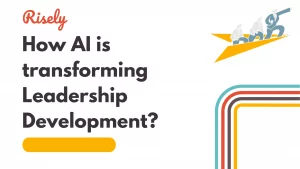How to ask for feedback from employees? | Gurleen Baruah
Feedback is a two way street. This podcast took managers on a trip down the other side. As managers, we are told that we should seek feedback from our teams, but the question is – how do we do that? Most managers are untrained in constructive feedback in general, the task of seeking opinion of someone else further adds to the anxiety. To top it off, the team members are often worried and do not give frank feedback to their managers. Is there a way out of this tussle? We discuss three key questions with Ashish and Gurleen, to understand how to ask for feedback from employees:- Why is receiving feedback effectively crucial for leaders and managers?
- Why are individuals not receptive to feedback and how can that be addressed?
- How can a manager build a feedback culture in their team?
Watch Now on YouTube
Meet the Speaker!

Gurleen Baruah is founder of That Culture Thing, a management consulting firm led by business psychologists, marketers, and academicians, aimed at helping organizations be significantly more efficient, effective, and financially profitable using Human Capital.
Connect with Gurleen: LinkedIn
How to ask for feedback from employees? Key takeaways –
- Receiving feedback is essential for professional growth for everyone in an organization, regardless of their position in the hierarchy. Feedback helps individuals improve and take their performance to the next level. For managers, this is important because they work with people and impact careers of others too. Your performance is not just your own!
- Psychological safety is critical for giving and receiving feedback. Your team may not feel safe giving unsolicited feedback to you due to fear of retribution or not knowing if you are receptive. As a manager, it becomes your task to be pro-active and create a space for safe dialogue and exchange of feedback.
- There are three common triggers that cause defensiveness when receiving feedback: Truth triggers (disagreement on facts), relationship triggers (focusing on the giver rather than the content), and identity triggers (taking feedback personally). Understanding these triggers will help you in giving and receiving constructive feedback from your team effectively.
- Managers need to be self-aware and open to feedback, which can help them identify their blind spots and become better leaders. They should be humble and curious rather than defensive.
- Building a feedback culture involves shifting from a top-down approach to peer-to-peer feedback, encouraging a culture of asking for feedback rather than just giving it. Regular, real-time, informal communication is more effective than annual feedback.
- Managers should focus on the future when giving feedback and move away from rehashing past mistakes. They should also actively listen to understand the core message in feedback and filter out the noise.
- Maturity plays a role in how feedback is received. Younger professionals may be more defensive due to the development of their prefrontal cortex, which is related to logical thinking and decision-making. So, your lesson in how to ask for feedback from your team also needs to focus on where your team members are coming from. There reasons of not giving feedback vary a lot.
Meet the Host

Ashish is an entrepreneur tackling workplace development challenges through Risely, an AI copilot that helps managers and leaders build essential people skills.
Drawing on his experience in technology and organizational behavior, he’s passionate about creating scalable solutions that transform how companies develop their talent. His mission is to empower leaders to build thriving teams and sustainable organizational success.
Connect: LinkedIn
How strong are your constructive feedback skills?
Free out now with a free assessment from Risely and start growing.






